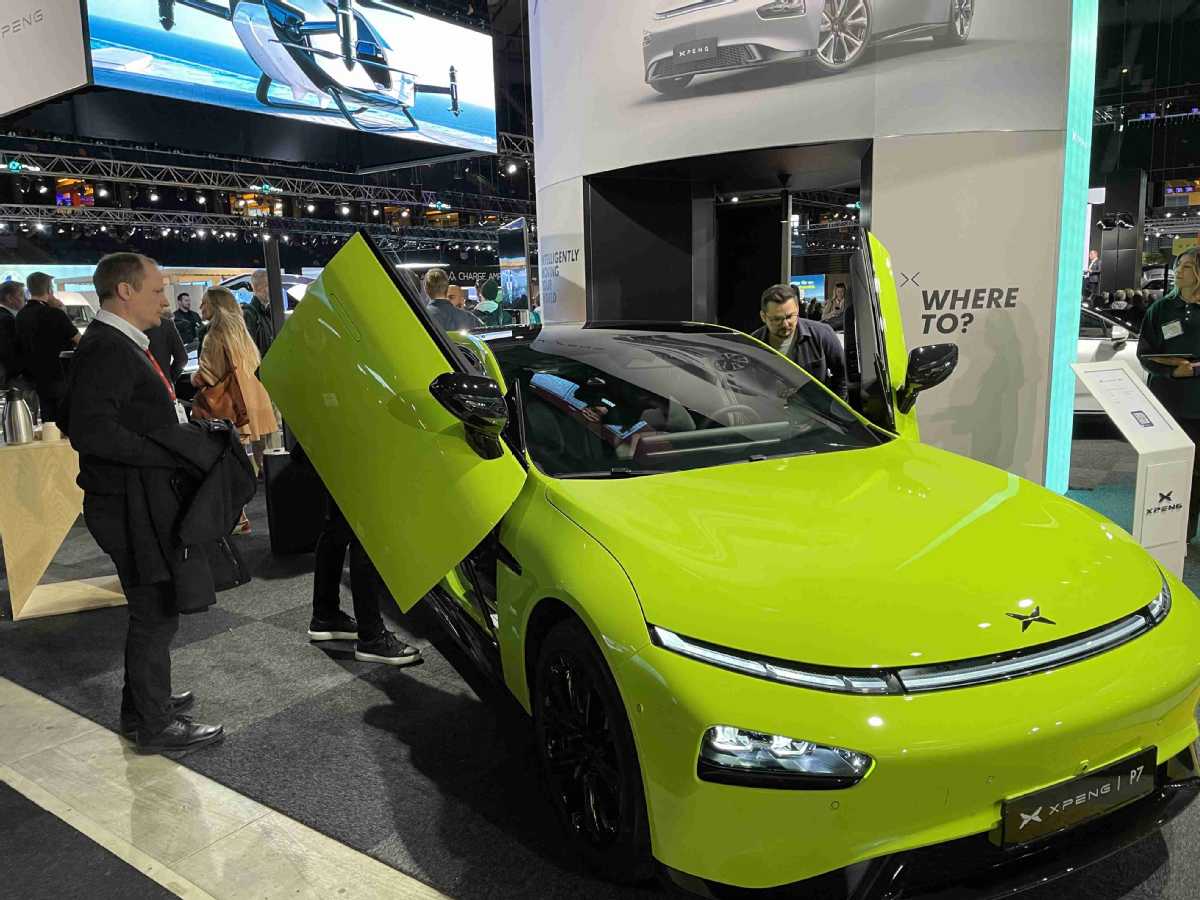Country's EV companies making inroads in Europe

Chinese carmakers are trying to make an impact in Europe, the birthplace of modern vehicles, as the global auto industry is shifting toward electricity.
Great Wall Motors, China's largest maker of pickups and sport utility vehicles, showcased three electric cars and two plug-in hybrid SUVs on Monday at the ongoing Paris auto show.
Meng Xiangjun, the Chinese carmaker's president of European operations, said the company sees Europe as one of its most important markets in its "go-global "strategy.
Two of its five models hit the market at the Paris event: the electric Ora Funky Cat sedan and the Wey Coffee 01 plug-in hybrid SUV, both of which have won the top ranking in Europe's new car quality assessment program.
The models will come out on the market in the fourth quarter, starting in countries including Germany and the United Kingdom.
Warren Buffett-backed BYD showcased three electric models — the Tang, Han and Atto 3 — at the same auto event in Paris, where several car buyers representatives from Norway and the Netherlands received their car keys.
"We are excited to offer our latest models to European customers," said Shu Youxing, a senior executive at BYD's European unit. "We would like to join hands with local dealers to push forward the shared emission-free dreams."
BYD's Atto 3 has won big company orders in Europe. On Oct 4, Germany-based car rental company Sixt said it will purchase around 100,000 Atto 3s from BYD.
In the first step, Sixt is ordering thousands, the first of which will be available in Europe in the fourth quarter this year, and the rest will be gradually delivered by 2028.
Vinzenz Pflanz, Sixt's chief business officer, said, "BYD is the world's largest vehicle manufacturer in the area of e-mobility. The agreement with BYD is an important milestone to deliver on our promise of putting significantly more e-cars onto the street."
Cui Dongshu, secretary-general of the China Passenger Car Association, said China is seeing a surge in exports of electric cars, due to their acceptance in overseas markets because of their competitive edge, growing number of model choices and improved service networks.
In the first three quarters, China exported 389,000 NEVs, double the amount from the same period last year. The top three destinations of such vehicles were Belgium, the UK and Thailand.
SAIC Motor, China's largest carmaker, shipped 10,000 MG 4s to Europe in September, marking the country's largest shipment of electric cars to overseas markets.
In the fourth quarter, the hatchback is expected to be sold in around 20 nations on the continent. By 2023, it will be available in some 80 countries around the world.
SAIC said the model will help it grow in Europe as its first overseas market where its annual sales can reach 100,000 units.
Maxus, a SAIC marque, launched its electric multipurpose vehicle, MIFA9, and its electric pickup, T90 EV, in September at IAA Transportation, a commercial vehicle show in Hannover, Germany.
These models have further enriched its lineup in Europe and allow it to explore new segments, the Shanghai-based carmaker said.
Maxus said its electric vehicle sales in Europe now account for 17 percent of its total exports, and over 90 percent of its total sales in Europe are electric vehicles.
SAIC aims to sell at least 240,000 NEVs annually in Europe by 2025 as part of its goal to deliver 1.5 million vehicles to overseas markets that year.
In a report on Monday, the European Federation for Transport and Environment said Chinese-made electric vehicles accounted for 5 percent of electric car sales in the European Union in the first half of this year. It expects the figure to rise to 18 percent by 2025.

